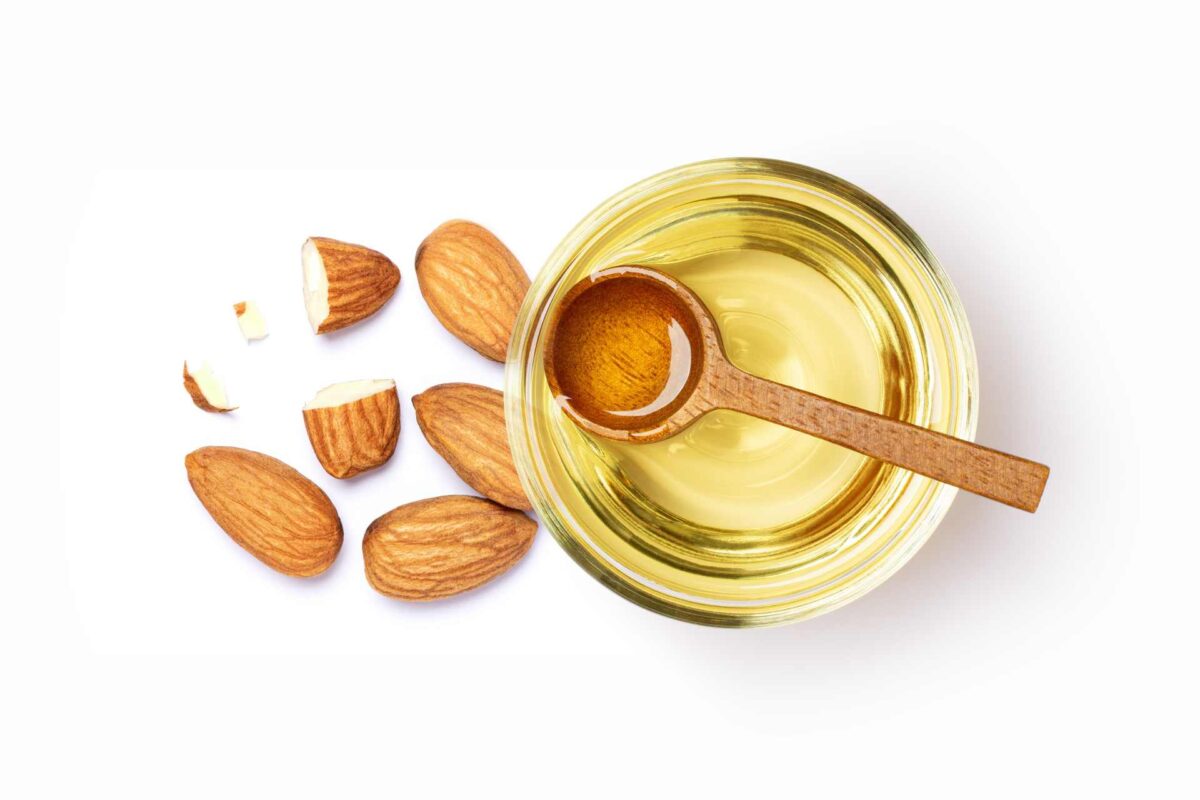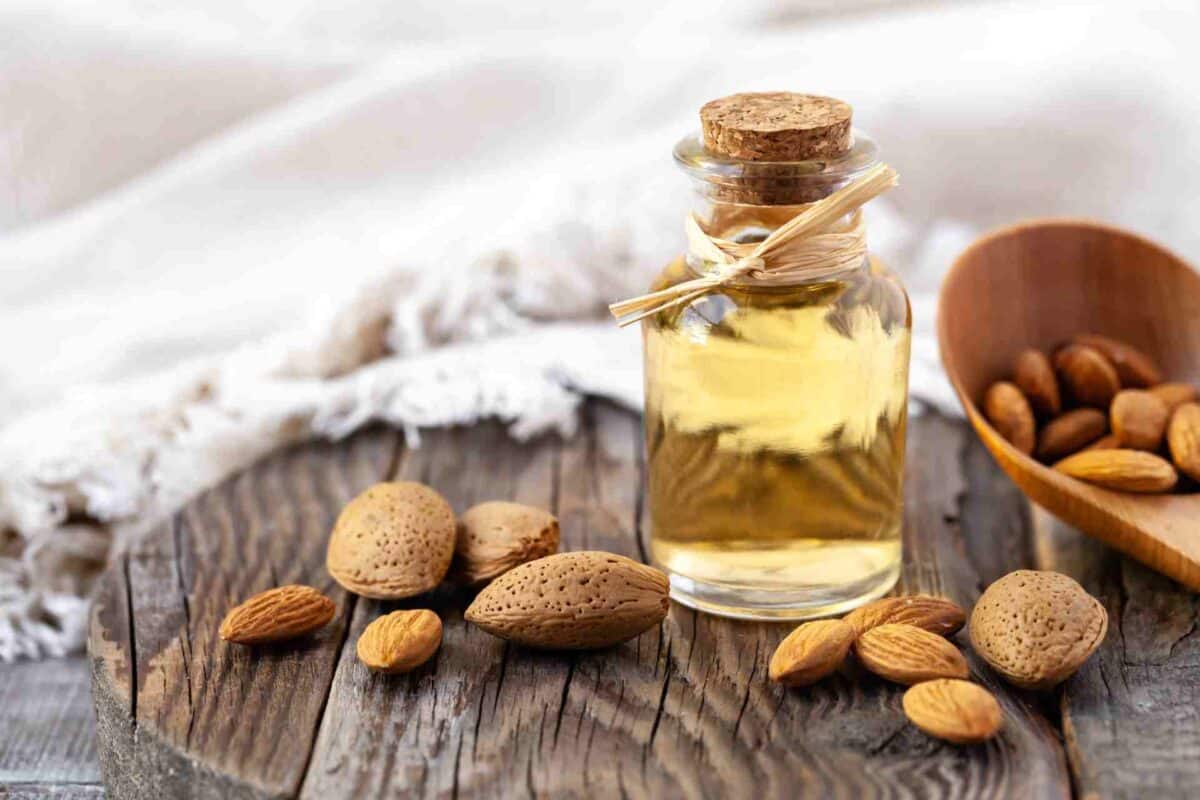Non-comedogenic ingredients are specifically chosen for their ability not to block pores, making them ideal for all skin types, especially oily and acne-prone skin. Among the various natural ingredients gaining popularity, almond oil stands out but the question arises, is almond oil comedogenic? Let’s explore below.
What Does Non-Comedogenic Mean?
Non-comedogenic simply means an ingredient is unlikely to clog your pores. Pores are tiny openings in your skin that let oil and sweat out. When they get clogged with oil, dead skin cells, or other impurities, it can lead to blackheads and whiteheads (comedones). These can even turn into pimples. This characteristic is especially crucial in cosmetic ingredients used in products like moisturizers, sunscreens, and makeup, which remain on the skin for extended periods.
The Cosmetic Ingredient Review (CIR) board, an independent panel of experts appointed by the US Food and Drug Administration (FDA), evaluates the safety of cosmetic ingredients. Part of this process involves assessing comedogenicity.
The CIR uses a comedogenic rating scale based on human studies. Ingredients are rated from 0 (not comedogenic) to 5 (highly comedogenic).
What Makes Almond Oil Non-Comedogenic?
Almond oil is a natural oil extracted from sweet almonds. Its light texture and gentle properties make it a popular choice in cosmetics. The secret lies in its chemical makeup. Rich in fatty acids like oleic acid and linoleic acid, almond oil is lightweight and absorbs easily into the skin without leaving a greasy residue. It also contains vitamins A and E, which are beneficial for skin health.
The Advantages of Almond Oil in Cosmetic Formulations
Beyond its non-comedogenic nature, almond oil boasts several other benefits that make it a popular choice for cosmetic manufacturers:
- Hydration: Almond oil is an emollient, meaning it helps in moisture retention, thus providing deep hydration to the skin. It is effective in softening and smoothing the skin without leaving a greasy residue.
- Skin Barrier Enhancement: The essential fatty acids in almond oil help strengthen the skin’s natural barrier, protecting it against external pollutants and reducing water loss. This is crucial for maintaining skin health and preventing irritation.
- Suitability for Sensitive Skin: Due to its mild and hypoallergenic nature, almond oil is well-suited for sensitive skin types. It is gentle and less likely to cause allergic reactions or irritate the skin.
- Anti-inflammatory Properties: Almond oil has natural anti-inflammatory properties, making it beneficial for conditions like eczema, psoriasis, or acne-prone skin. It helps soothe the skin and reduce inflammation and redness.
- Versatility in Formulations: Almond oil can be easily incorporated into various cosmetic products, including creams, lotions, serums, and balms, enhancing their texture and efficacy.
- Appeal to Health-Conscious Market: As consumers become more health-conscious and wary of the ingredients in their skincare products, almond oil’s non-comedogenic and natural profile makes it highly attractive. It aligns with the growing trend of clean beauty, which emphasizes transparency and the use of safe, non-toxic ingredients.
Almond Oil in the Cosmetic Industry
Almond oil’s multifaceted properties make it a staple in various cosmetic applications. Here’s a quick look at its diverse roles:
- Moisturizers and Creams: Almond oil is widely used as a key ingredient in moisturizers and creams because of its emollient properties. It helps in improving skin texture and moisture retention.
- Face Serums: The oil’s rich vitamin content, particularly vitamin E, makes it a popular choice for face serums aimed at anti-aging and skin nourishment.
- Hair Care Products: Due to its ability to soften and strengthen hair, almond oil is often found in shampoos, conditioners, and hair masks.
- Body Oils and Lotions: Its soothing effects and quick absorption make almond oil ideal for body oils and lotions that promote skin health without leaving a greasy residue.
- Lip Balms: The hydrating properties of almond oil provide essential moisture to lip balms, helping to prevent chapped lips.
Integrating Almond Oil into Your Product Line
Almond oil’s remarkable versatility and beneficial properties have made it a staple in the cosmetic industry. But how can you seamlessly integrate it into your existing cosmetic line? Consider these:
- Stability: Almond oil is rich in monounsaturated fats, which lend it a stronger stability compared to polyunsaturated oils. However, like all natural oils, almond oil is prone to oxidation, which can degrade its quality over time. To enhance its stability, it’s crucial to store almond oil in cool, dark conditions. Incorporating antioxidants such as Vitamin E can also help extend its shelf life by preventing rancidity.
- Shelf Life: The shelf life of your final product will depend on the other ingredients you use. Conduct thorough stability testing to determine the optimal shelf life of your product containing almond oil.
- Compatibility: Almond oil blends well with many other cosmetic ingredients. However, it’s important to test it with other components in your formulation to ensure compatibility and avoid potential interactions.
Transform Your Cosmetic Line with Premium Almond Oil from Harris Woolf Almonds
Almond oil is a powerful non-comedogenic ingredient that offers a multitude of benefits for your cosmetic formulations. Its lightweight texture, hydrating properties, and suitability for sensitive skin make it a versatile addition to various product lines.
Harris Woolf Almonds takes pride in providing the highest quality almond oil for cosmetic applications. Our unrefined sweet almond oil is 100% food-grade and single-source, ensuring complete traceability and purity. This translates to a consistent, high-performance ingredient for your cosmetic creations.
Ready to learn more about how Harris Woolf Almonds can elevate your cosmetic line? Learn more about our almond oil and contact us today to explore the possibilities!















